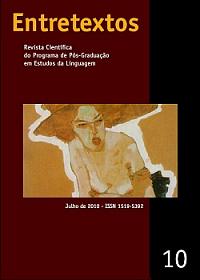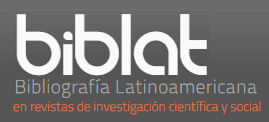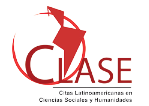Beliefs: students’ thoughts concerning the portuguese language teaching
DOI:
https://doi.org/10.5433/1519-5392.2010v10n1p123Keywords:
Beliefs, Teaching, Portuguese languageAbstract
This work discusses the results of a research with students from public schools, concerning beliefs (positive or negative valuation) for Portuguese language teaching. Based on precepts of Wallace Lambert (1972), relating to psychology of language, it seeks to analyse beliefs and possible student attitudes regarding the Portuguese language teaching. For that, it was applied a questionnaire with eight questions to ten students (both sexes, aged 15 to 16 years) from the second year of secondary year in a traditional school in Londrina city center. The results originated five graphs which helped in the interviewees’ answers. It was concluded that: (i) the negative beliefs are more connected with the teacher; (ii) students cannot establish a relationship between the teaching of Portuguese language and its application in their professional lives, because of the distance of the teaching methods from their social reality; (iii) the female students have greater ease in use of language when answering the questionnaire than male students.Downloads
References
BRASIL, Ministério da Educação. Parâmetros curriculares nacionais – Ensino fundamental– Língua Portuguesa. Brasília: SEF/MEC, 1998.
CAMACHO, Roberto. A variação linguística. In: Subsídios à proposta curricular de língua portuguesa para o primeiro e segundo graus. São Paulo, SE/CENP, 1988, p. 53-60.
CASTILHO, Ataliba Teixeira de. Variação dialetal e ensino institucionalizado da língua portuguesa. In: BAGNO, Marcos (org). Linguística da Norma. São Paulo. Loyola, 2002. p. 27-36.
FERNÁNDEZ, Francisco Moreno. Actitudes Linguísticas. Capítulo 10 In: Principios de sociolinguística y sociología del lenguaje. Barcelona: Ariel, 1998, p. 180-193.
LAMBERT, Willian e Wallace. O significado Social das atitudes. Capítulo 4. In: Psicologia Social. Tradução: Álvaro Cabral. Rio de Janeiro: Zahar Editores, 1972, p. 76-106.
MATTOS e SILVA, Rosa Virgínia. O português são dois: variação, mudança, norma e a questão do ensino do português no Brasil. Novas fronteiras, velhos problemas. São Paulo. Parábola, 2004.
MOLINA, José Gómez. Actitudes Lingüísticas en Valencia y su área metropolitana: evaluación de cuatro variedades dialectales. In: CONGRESSO ALFAL, , 11., 1998, Las Palmas. Actas... Las Palmas: Universidad de Las Palmas de Gran Canaria, jul. 1998. T.2.
MORALES, Humberto Lopez. Sociolingüística. 2. ed. Madrid: Gredos, 1993, 231- 257.
SANTOS, Emmanoel dos Santos. Certo ou errado? Atitudes e Crenças no ensino de Língua Portuguesa. Rio de Janeiro: Graphia, 1996.
SILVA-CORVALÁN, Carmen. Sociolinguística Teoria y análisis. Madrid: Ed. Alhambra, S.A, Espanha, 1989.
Downloads
How to Cite
Issue
Section
License
Entretextos adota a Licença Creative Commons Attribution 4.0 International, portanto, os direitos autorais relativos aos artigos publicados são do(s) autor (es).
Sob essa licença é possível: Compartilhar - copiar e redistribuir o material em qualquer suporte ou formato. Adaptar - remixar, transformar, e criar a partir do material, atribuindo o devido crédito e prover um link para a licença e indicar se mudanças foram feitas.




















